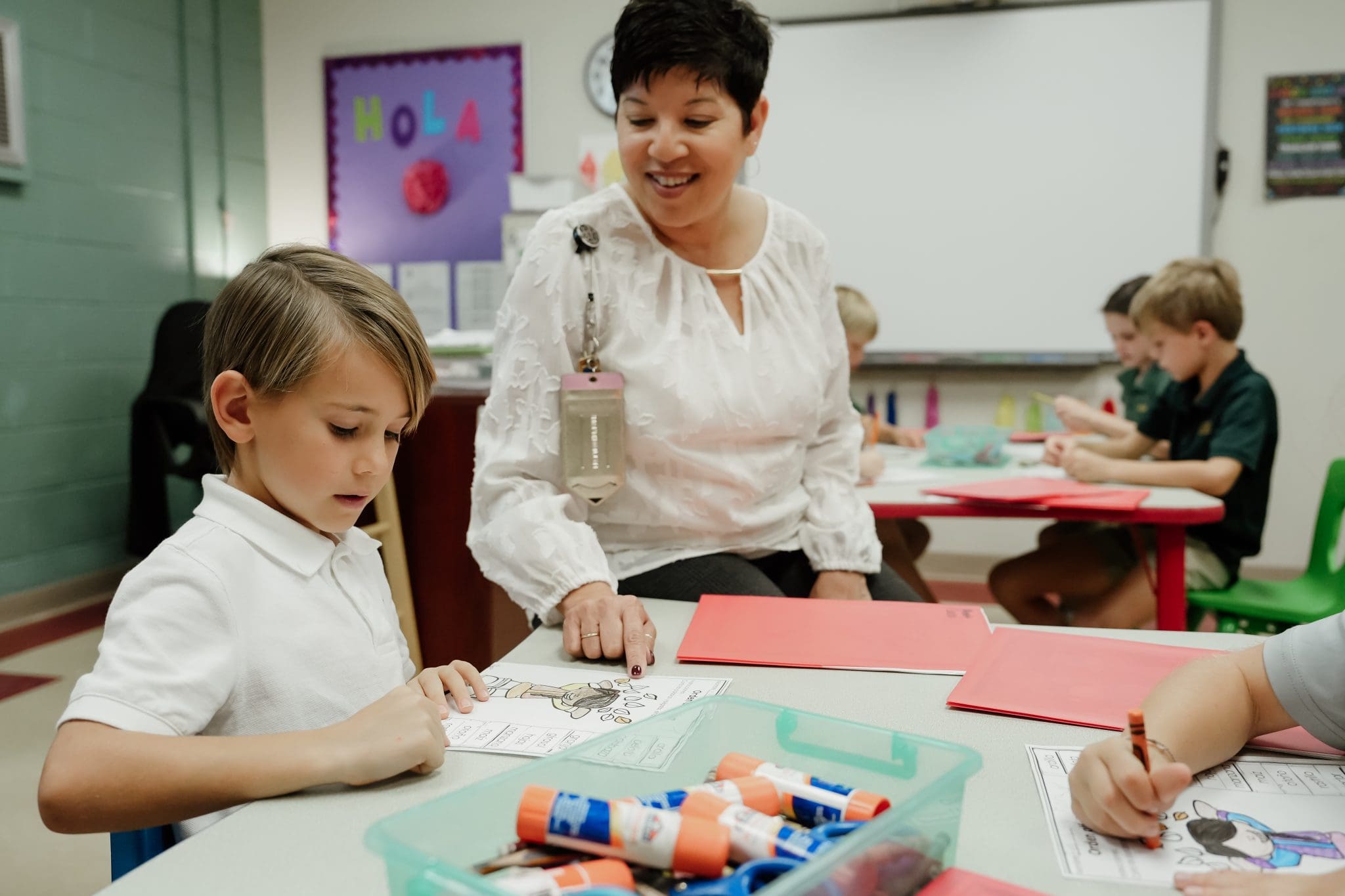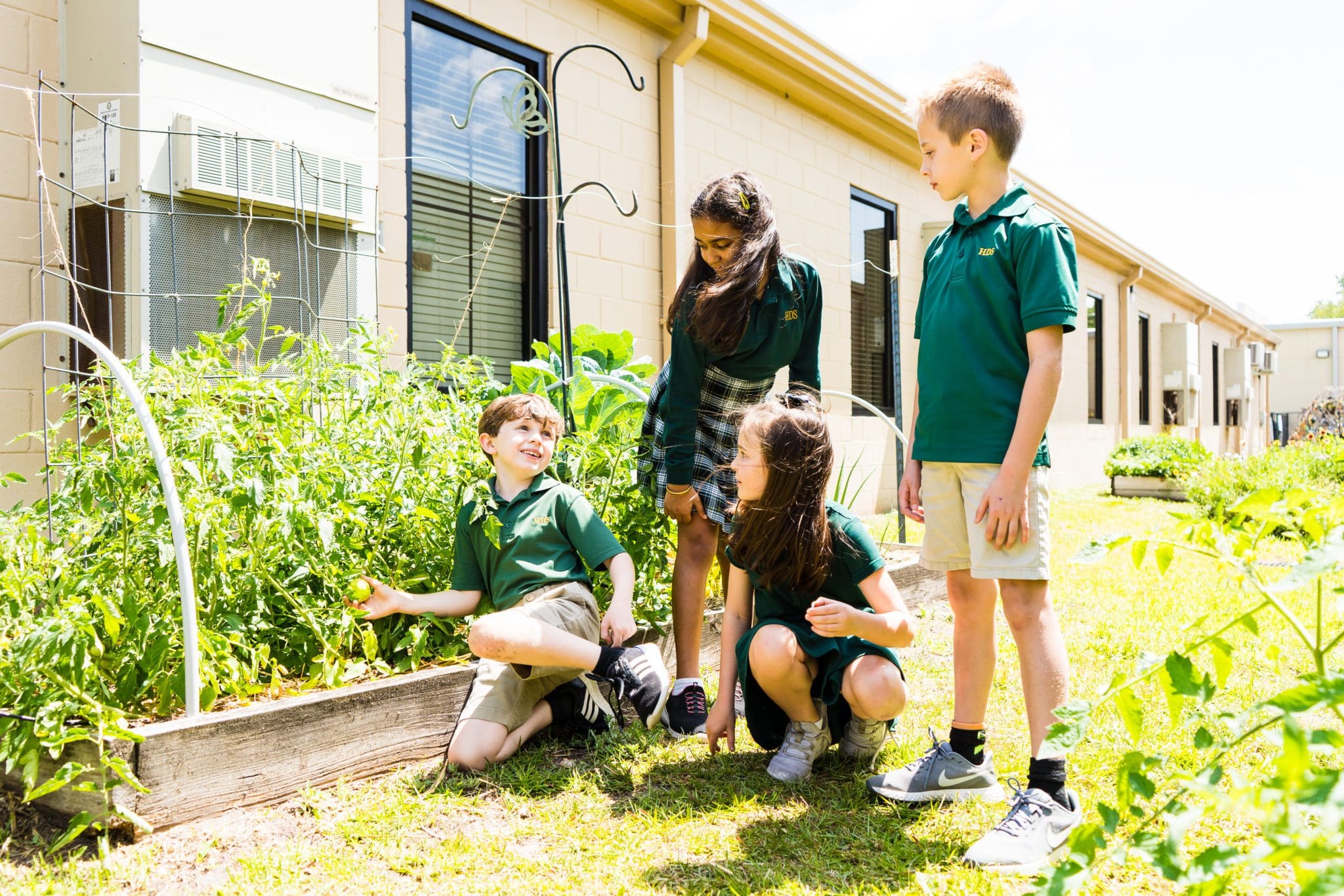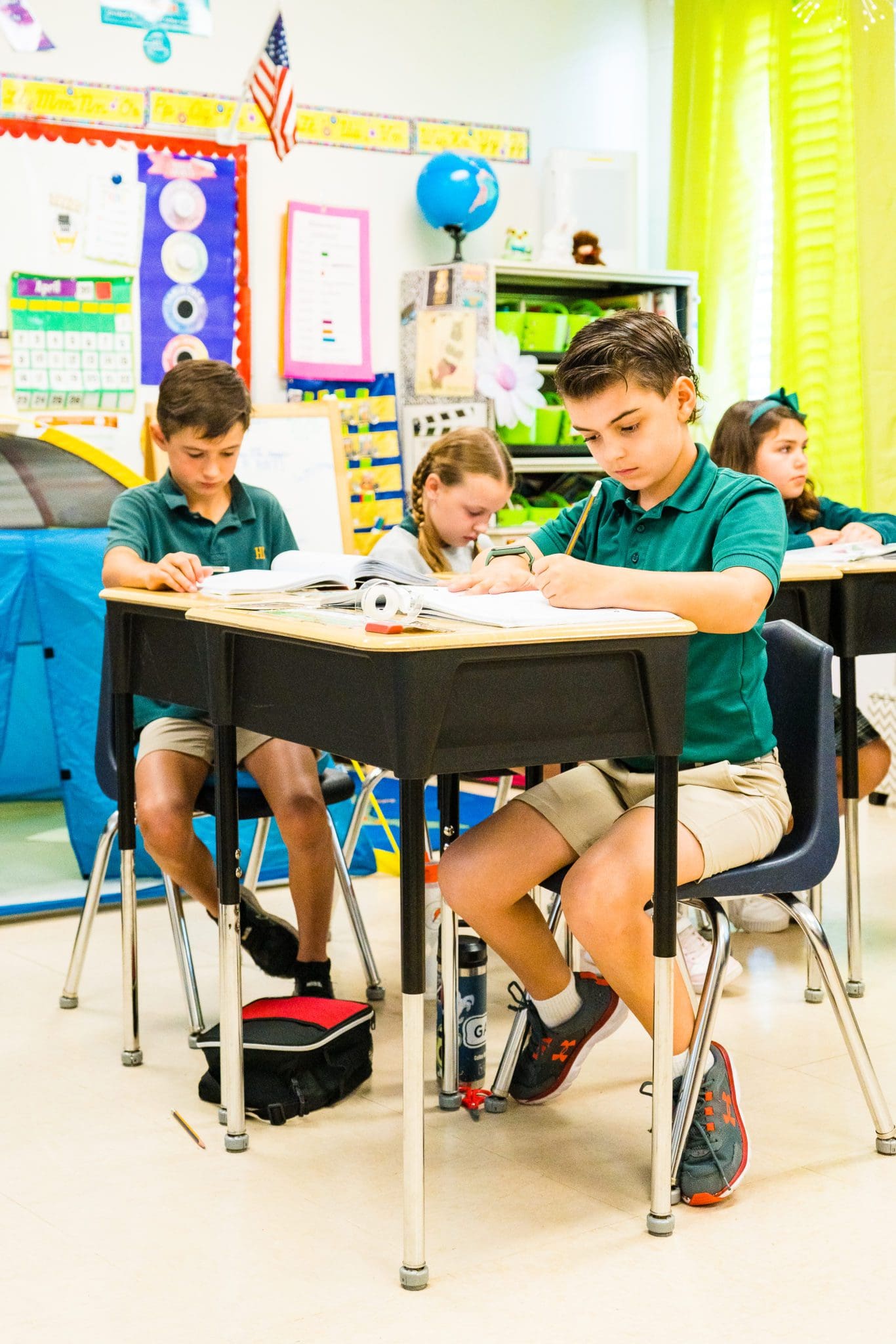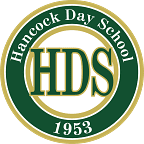LOWER SCHOOL 3rd-5th Grades
Reading and Writing
Developing strong readers and writers is at the core of what we do. For many years Hancock Day School has used explicit phonics instruction to help guide our youngest students as they learn to read, and we are proud to have trained our faculty in the Orton-Gillingham Approach, a direct, multisensory, sequential method for teaching literacy. This approach, combined with individual attention and exposure to a variety of texts and genres, ensures that our students are enthusiastic readers who can thoughtfully express their ideas in writing.
In 3rd-5th Grades, students develop communication skills while strengthening their reading comprehension and written expression. Students are reading more sophisticated texts across a variety of genres and learning to find text evidence to support their thinking as they read with a critical eye to distinguish fact from fiction. Grammar and mechanics are emphasized in addition to learning to decode and define a variety of vocabulary words.
Math
The goal of our mathematics curriculum is to teach students to think creatively, flexibly, and critically as they grow to become confident math students and problem solvers. Using the Dimensions Math series from Singapore Math in primary and lower school, concepts are introduced in a tangible way through manipulatives and pictures before moving to more abstract representations. Bar modeling and number bonds help students foster a strong number sense. Hands on practice and real world applications are hallmarks of the Hancock Day School math education.
In 3rd-5th Grades, math instruction is designed to help students become confident problem solvers with the depth of understanding necessary for algebra. Units of study focus on a variety of areas including multiplying and dividing multi-digit numbers, fractions, decimals, ratios, expressions, equations, and inequalities. Frequent assessment ensures that teachers can differentiate their instruction and provide additional support or challenge as needed. The use of games, technology, manipulatives, and real-world examples ensures that students develop a depth of understanding to prepare them for success in middle school and beyond.
Science
Understanding that children are naturally curious, our science curriculum is designed to encourage students to actively question and explore the world around them. Our science labs, classrooms, and outdoor spaces provide children with meaningful, interactive opportunities to make discoveries and ask questions. Our science instruction is designed to build on prior knowledge with units that cover earth, physical, and life sciences while increasing in complexity each year.
Students explore the Inspire Science series by McGraw Hill, and specific units of study include the Earth’s water system, matter, forces and energy, life cycles, and electricity and magnetism. The scientific method is a major point of emphasis as students are encouraged to be creative, curious, and open-minded.
Social Studies
In order for our students to become adults who positively impact the world, we believe that students must first develop an understanding of history and geography. Through the use of the Core Knowledge series, our students grow to understand diverse civilizations, cultures, and concepts. Our units of study integrate civics and the arts, and students study a blend of US and world history, as well as geography and map skills. We explore a variety of times and places as students are encouraged to consider how people relate to one another, observe patterns of change, and understand the reactions of people or groups to that change. Always looking for connections between current events and those in the past, our faculty brings history to life while modeling empathy and a respect for different perspectives.
Building on prior knowledge, history comes to life for our third through fifth grade students as they complete hands on activities, explore artwork, and examine literature from different cultures and time periods. With a continued focus on geography and map skills, students study important people and events from the past as well as their impact on our current world. Units of study include The Vikings, Dynasties of China, Early Russia, and Feudal Japan in addition to The Thirteen Colonies, American Reformers, Westward Expansion, and The Civil War.




